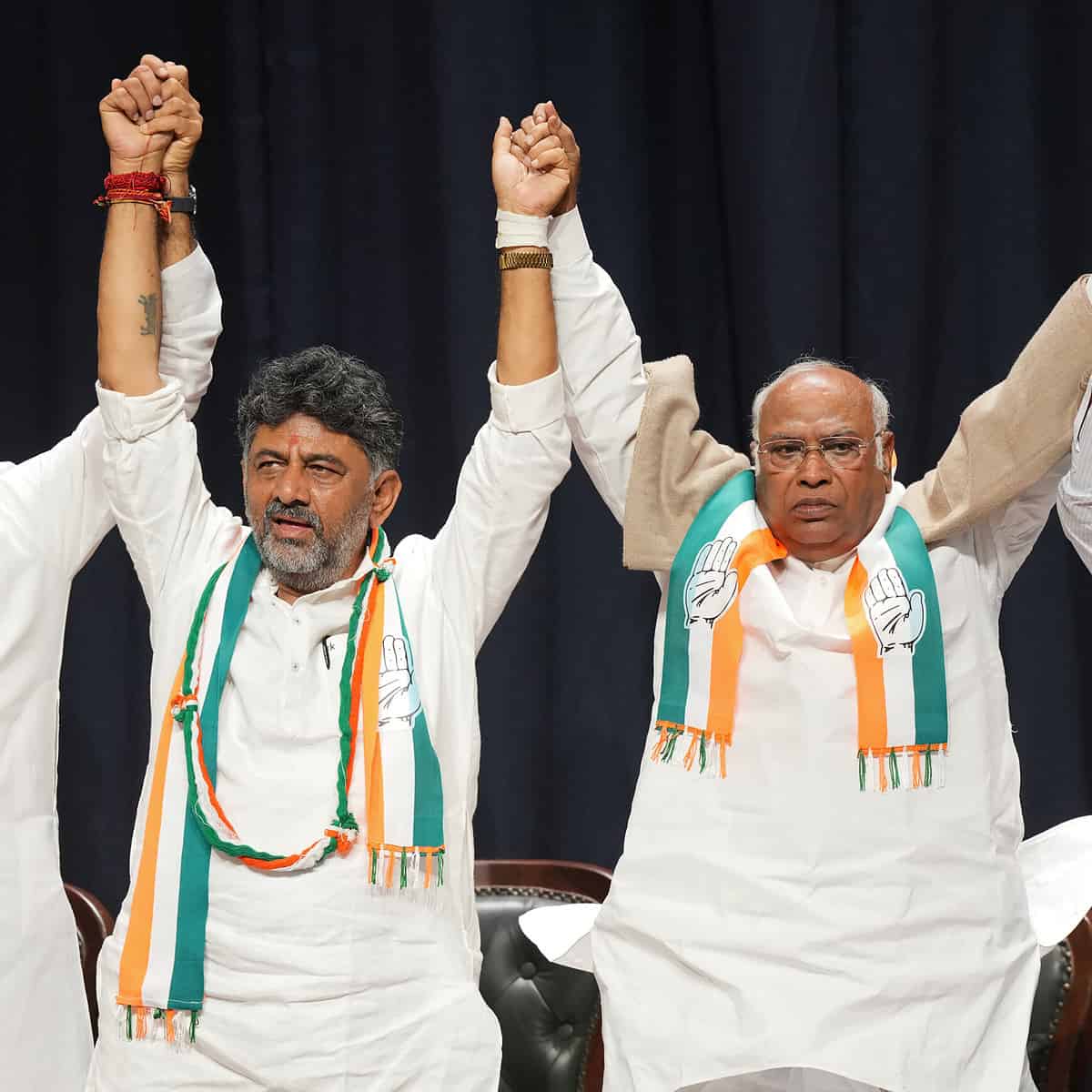

The recent ouster of the incumbent BJP in the Karnataka assembly elections holds important lessons for both opposition parties and the BJP itself. Despite Karnataka’s historical trend of not voting back an incumbent government, the BJP suffered a significant loss, securing only 66 seats compared to the Congress’ 135 seats. This article examines the post-election data and reveals crucial insights from the election results.
Economic distress upends caste-based loyalty
A distinctive factor in the Karnataka assembly elections was the emergence of a class coalition that transcended traditional caste boundaries. The poor, particularly a large chunk of the AHINDA, an acronym for minorities, backward castes, and Dalits, demonstrated a preference for Congress beyond their caste and religious identities. The Exit polls of India Today-AXIS revealed that 60% of scheduled tribes and 44% of scheduled castes voted for the Congress, which bagged 14 of 15 reserved seats for the ST and 22 out of 36 seats for the SC, while the BJP experienced a decline in support from these groups compared to the 2018 elections. Additionally, the Congress garnered significant support from the Kuruba community, a backward class, and received a resounding 88% backing from the Muslim community.
The rallying point for the AHINDA consolidation behind the Congress was escalating economic distress. In the Lokniti-CSDS survey, over 57% of respondents identified unemployment, poverty, and rising prices as their primary concerns when casting their votes. More than 50% of these voters supported Congress, suggesting that economic hardships superseded caste distinctions. The soaring cost of LPG cylinders, from Rs 480 in 2018 to Rs1105, struck a chord with voters, contributing to the Congress’s appeal. Furthermore, Congress gained traction in 52 constituencies where female voters outnumbered men, as they felt the burden of economic challenges more acutely.
Is it Freebies or succour in crisis?
The Congress’ “5 Guarantees” resonated with voters burdened by economic hardships. Promises of free electricity, ration, allowances for educated graduates and women heads of households, and free transport for women gained significant support. Notably, Congress’s vote share increased in the top five poorest districts based on per capita GDP, where they secured 45% of the votes compared to the BJP’s 38%. Moreover, Congress received substantial support from regions with lower gross state domestic product (GSDP), such as Hyderabad Karnataka, Bombay Karnataka, Central Karnataka, and Southern Karnataka where it bagged more than 65% of seats.
Bread and butter over Hindutva
The BJP’s focus on Hindutva politics proved less effective in Karnataka. Outgoing CM Basavaraj Bommai acknowledged that issues like the hijab, halal, and Azan mattered more to the media than to the party in the India Today conclave before the elections signalling that the party has sensed the diminishing utility of polarisation politics. Despite attempts to polarise the electorate by accusing the opposition of sheltering terrorists and invoking Bajrang Bali, the BJP suffered a humiliating defeat in districts like Chikamagalur and Kodagu, where they had previously relied on Hindutva appeals for decades. Notably, the party failed to secure a single seat in nine districts, approximately one-third of the state.
Prominent BJP figures associated with controversial policies faced defeat. BC Nagesh, the education minister in Bommai’s Cabinet, known for advocating the ban on hijab for Muslim girl students in PU colleges, suffered a defeat witha significant loss in votes. Similarly, CT Ravi, a four-time MLA involved in polarising issues also lost the elections.
Despite the BJP winning in coastal Karnataka, a stronghold of Hindutva politics, their vote share decreased by 3.1% points. The decision to allow Gujarat-based Amul to enter Karnataka, seen as a threat to the state’s cooperative dairy business, backfired with the top five milk-producing districts showing increased support for Congress, with a rise in vote share of 5.95% points compared to 2018.
The Karnataka assembly elections provide valuable lessons for upcoming elections in other states. The BJP’s perceived invincibility is debunked, emphasising the importance of strong, united state-level leadership that addresses local issues concerning the electorate. The BJP must recognise that neither polarisation nor the image of a supreme leader suffices to alleviate the economic hardships caused by inadequate governance.
(Ravinandan B B is a Assistant Professor (Specialisation: Data Journalism) Institute of Communication and Media Studies St.Joseph’s University Langford Road Bengaluru. Phone number: 9986511717)



